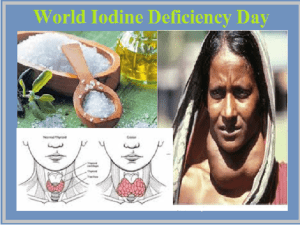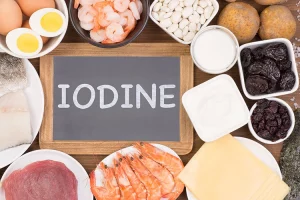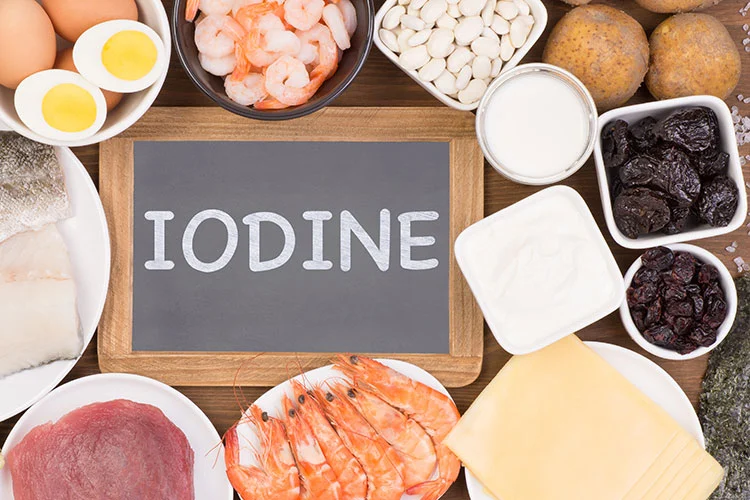Introduction
Iodine, a trace element that often goes unnoticed, plays a critical role in maintaining our health. While its presence in our daily diet may be modest, its significance cannot be overstated. In this article, we will explore the vital role that iodine plays in maintaining thyroid health and overall well-being. Understanding the importance of this essential nutrient is key to ensuring a healthy and thriving body.
Thyroid Health and Iodine Connection
The thyroid gland, a small butterfly-shaped organ located in the neck, is responsible for producing thyroid hormones—thyroxine (T4) and triiodothyronine (T3). These hormones play a crucial role in regulating various metabolic processes in the body. The key component that makes these hormones unique is iodine, and without an adequate supply of this trace element, thyroid function can become compromised.

Iodine: A Thyroid Essential
Iodine is, without a doubt, the star player when it comes to thyroid health. It is an essential component of the thyroid hormones, and its deficiency can lead to various thyroid-related issues. Here’s why iodine is so important for thyroid function:
1. Hormone Synthesis: Iodine is an integral part of thyroid hormones, and without it, the thyroid gland simply cannot produce them. This makes iodine a fundamental building block for thyroid hormones.
2. Regulation of Metabolism: Thyroid hormones influence our metabolic rate. They impact how the body utilizes energy, maintains body temperature, and manages weight. A deficiency in iodine can lead to an underactive thyroid, resulting in symptoms like fatigue, weight gain, and sensitivity to cold.
3. Growth and Development: Iodine is particularly critical during pregnancy and infancy. It plays a pivotal role in the development of the baby’s brain and nervous system. Iodine deficiency during pregnancy can result in cognitive and developmental issues in the child.
The Global Iodine Deficiency Problem
Despite the importance of iodine, iodine deficiency remains a global concern. Inadequate iodine intake can lead to various health problems, with the most common being goiter, a condition characterized by the enlargement of the thyroid gland. Severe iodine deficiency can result in intellectual disabilities, particularly in children born to iodine-deficient mothers.
Iodized Salt: A Simple Solution
One of the most effective and widely implemented strategies to combat iodine deficiency is iodized salt. Iodized salt is simply table salt infused with iodine. It is a simple and cost-effective way to ensure that people receive an adequate intake of iodine through their daily diet. This public health initiative has significantly reduced the prevalence of iodine deficiency in many regions.
Balancing Iodine Intake
While iodine is undoubtedly essential, it’s important to maintain a balance. Excessive iodine can also be harmful and lead to thyroid problems. Therefore, it’s crucial to ensure that your iodine intake is within the recommended daily allowances, which vary by age and life stage.
Natural Sources of Iodine
Iodine can be naturally sourced through a variety of dietary choices. Some common sources include:
- Seafood: Fish, shrimp, and seaweed are rich in iodine.
- Dairy Products: Milk, yogurt, and cheese contain iodine.
- Eggs: Eggs are another good source of iodine.
- Iodized Salt: As mentioned earlier, iodized salt is a simple way to boost iodine intake.

Image By: https://inside.hochdorf.com/
Conclusion
Iodine, a humble yet crucial trace element, plays an indispensable role in maintaining thyroid health and overall well-being. Its contribution to thyroid hormone synthesis and its impact on metabolism and development underscore its significance in our daily lives. Understanding the importance of iodine and ensuring its presence in our diet is vital to nurturing a healthy and thriving body. Let’s not underestimate the power of this unassuming nutrient and its profound impact on our health.












